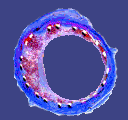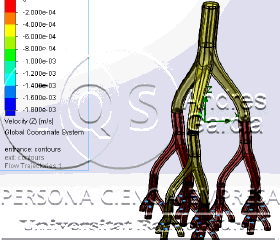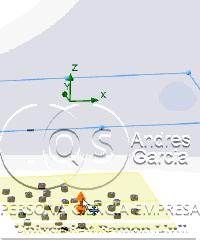FULL PARTNERS


ASSOCIATED PARTNERS
 Harvard-MIT Biomedical Engineering Center.
Harvard-MIT Biomedical Engineering Center.

BBB project is not yet supported by the Spanish Minister of Innovation (as a "Plan Nacional
I+D+i ???").
SUMMARY:
Alzheimer’s disease (AD) is the most common type of dementia in the elderly. No cure exists for AD. With approximately 600,000 in Spain,
5.1 million Alzheimer’s patients in the US, and estimated yearly cost of 27,000 euros per patient (expected to almost double by 2030),
we cannot afford to wait; there is the urgent need to develop new and more effective diagnostic and therapeutic strategies. Current treatments
work by temporarily improving symptoms of memory loss and problems with thinking and reasoning, but do not stop the underlying decline and death
of brain cells. A better understanding of how the disease disrupts the brain is needed in order to develop more effective drugs able to not only
alleviating the symptoms, but also stop or delay the cell damage that eventually leads to the worsening of the symptoms.
Recent evidence suggests a link between cardiovascular and neurodegenerative disease. Interestingly there are common, yet independent, risk
factors associated with them. Vascular risk factors for AD include stroke, hypertension, diabetes, high homocysteine levels in blood, smoking,
hypercholesterolemia, heart failure and atrial fibrillation. The main objective of our collaborative project is to study how tissue and cell state
affect one’s susceptibility to develop disease. We will apply computational and in vitro models to study the role of endothelial state in vascular
and Alzheimer’s disease. A series of interrelated experiments has been carefully designed to enable us answering the following question: Is it
possible that these risk factors can trigger vascular dysfunction and AD pathology because of their sustained effect on the endothelium? In other
words, would a person with a family history of developing AD be more resistant to developing the disease if she/he possessed a healthy endothelium?
If our hypothesis is proven, we may have identified a new therapeutic window and design, along the way of our experiments, valuable methods to
identify target drugs for treatment.
The combined group of researchers from Spain and MIT provides a unique critical mass that can perform these experiments and analysis. The researchers
from IQS will couple the fundamental skills related to chemical engineering, chemistry, material science and applied mathematics to incorporate
finite element modeling of blood flow and transport phenomena of key chemical entities, as well as to design scaffolds that allow building
physiologically relevant cellular constructs. The researchers from Zaragoza will bring expertise in artificial vision, tissue-mechanics modeling
and instrumentation to develop a model that allows correlation of mass transfer effects with tissue function. From the other side of the globe, the
Edelman lab at MIT will provide expertise with regards to vascular biology, in vitro models, local drug delivery, computer-aided design modeling and
geometry parameterization. Benefiting from her double appointment as IQS associate professor and MIT research scientist, Dr. Balcells will nicely
integrate the combined effort of the committed transatlantic team..
Click the following link to download poster session on BBB,
September 13 - 16, 2012 | Potsdam, Germany
Poster_BBB_v120905.pdf Software to Generate CAD of Brain Capillary Network for FEM Simulation.
IQS work:
Work at IQS focuses on flow simulations of arteries,
production of prototypes and testing for improvement of BBB designs:
• Simulations focus on the flow pressures and velocities.
 Animated gif of flow velocities on a 3D capillar.
Animated gif of flow velocities on a 3D capillar.
• Prototypes are manufactured using several techniques. CAD is integrated to generate simulations, CNC of moulds and STL files for 3D printing.
 Animated gif of capillar manufacturing.
Animated gif of capillar manufacturing.
Why Blood Pressure Matters
http://www.heart.org/HEARTORG/Conditions/HighBloodPressure/WhyBloodPressureMatters/Why-Blood-Pressure-Matters_UCM_002051_Article.jsp
All About Hypertension
https://www.acls.net/all-about-hypertension.htm
28 Days to a Healthier Heart
http://www.cdc.gov/salt/healthy_heart_tips.htm
Hypertensive Heart Disease
http://www.healthline.com/health/hypertensive-heart-disease#Overview1
Improve Heart Health through Swimming
http://blog.intheswim.com/heart-health-swimming-pools/
10 Myths about Heart Disease
http://www.health.harvard.edu/newsletters/Harvard_Heart_Letter/2013/June/10-myths-about-heart-disease
For any queries do not hesitate to contact:
Andres-Amador Garcia-Granada:
Via Augusta 390, 08017 Barcelona, Spain
Tel.: +34 932 672 083 / Tel.Cen.: +34 932 672 000 -ext.283
Fax: +34 932 056 266
andres.garcia@iqs.edu
www.iqs.edu

Click here for a complete list of Andres-Amador Garcia-Granada Publications.


 Harvard-MIT Biomedical Engineering Center.
Harvard-MIT Biomedical Engineering Center.

 Animated gif of flow velocities on a 3D capillar.
Animated gif of flow velocities on a 3D capillar.
 Animated gif of capillar manufacturing.
Animated gif of capillar manufacturing.
